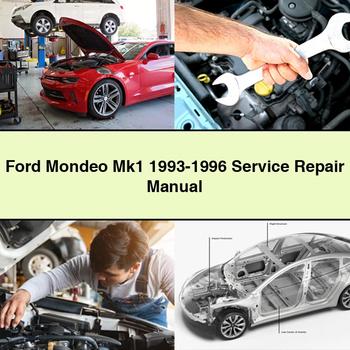Engine Mechanical:
Engine assembly, disassembly, overhaul, timing, lubrication, cooling system
Fuel System:
Fuel injection, fuel pump, fuel filter, fuel lines, evaporative emission control
Ignition System:
Ignition timing, spark plugs, coils, distributor (if applicable), electronic ignition control
Emission Control:
Catalytic converter, EGR system, PCV system, emission diagnosis
Intake Exhaust:
Intake manifold, exhaust manifold, exhaust system components
Transmission Manual:
Manual transmission overhaul, clutch service, gear shift mechanism
Transmission Automatic:
Automatic transmission overhaul, fluid service, electronic control (if applicable)
Drive Axles:
Driveshaft, CV joints, differential, axle shafts
Suspension:
Front and rear suspension components, alignment, shock absorbers, springs
Steering:
Steering column, power steering system, steering gear/rack, tie rods
Brakes:
Brake system components (discs, pads, calipers, lines), hydraulic system, parking brake
Wheels Tires:
Wheel specifications, tire fitment, rotation, balancing
Electrical System:
Battery, charging system, starting system, lighting, fuses, relays
Body Exterior:
Body panel removal/installation, doors, hood, trunk, bumpers, glass, mirrors
Body Interior:
Interior trim, seats, dashboard, console, HVAC system
Climate Control:
Air conditioning system service, heater core, blower motor
Restraint Systems:
Seat belts, Supplemental Restraint System (SRS) - airbags (diagnosis and service precautions)
Instrumentation Controls:
Instrument cluster, gauges, warning lights, switches, controls
Lighting:
Headlights, taillights, interior lighting, fog lights
Wipers Washers:
Wiper motor, linkages, washer pump, fluid reservoir
Multiplex Can Communication:
Diagnosis and understanding of multiplexed electrical systems and CAN communication (where applicable to Mk1 models)
Maintenance:
Routine maintenance procedures, fluid changes, filter replacements, inspections
Troubleshooting:
Systematic diagnostic procedures for common problems, including electrical issues
Repair:
Detailed step-by-step repair instructions for all major vehicle systems
Disassembly Reassembly:
Complete disassembly and reassembly instructions for components and systems
Diagnosis:
Fault finding techniques, diagnostic trouble codes (DTCs), wiring diagrams for electrical diagnosis
Depth:
Comprehensive, covering everything from basic maintenance to full engine and transmission rebuilds
Illustrations:
Hundreds of photos, drawings, and diagrams for clear guidance
Detail Level:
Detailed substeps, notes, cautions, and warnings for critical information
Oil Change Interval:
Typically 10,000 miles or 12 months, whichever comes first (refer to specific manual for exact figures)
Timing Belt Replacement:
Crucial for Zetec engines, typically every 60,000 miles or 5 years. Failure can cause catastrophic engine damage.
Engine Oil Type:
API SG/SH, ACEA A2/A3 rated, SAE 5W-30 or 10W-40 (depending on climate and engine variant)
Coolant Type:
Ethylene glycol based antifreeze, Ford Specification WSS-M97B44-D or equivalent (e.g., Prestone, Havoline)
Brake Fluid Type:
DOT 3 or DOT 4 brake fluid
Transmission Fluid Manual:
API GL-4, SAE 75W-90 or 80W-90 gear oil (e.g., Ford WSD-M2C200-C)
Transmission Fluid Automatic:
Mercon V or equivalent (check specific transmission type)
Common Issue 1:
Timing belt failure on Zetec engines if not replaced on schedule.
Common Issue 2:
Corrosion on wheel arches, sills, and rear suspension mounts.
Common Issue 3:
Front suspension component wear (ball joints, control arm bushings).
Common Issue 4:
Water ingress into the cabin, particularly around the windscreen and door seals.
Common Issue 5:
HVAC blower motor failure.
